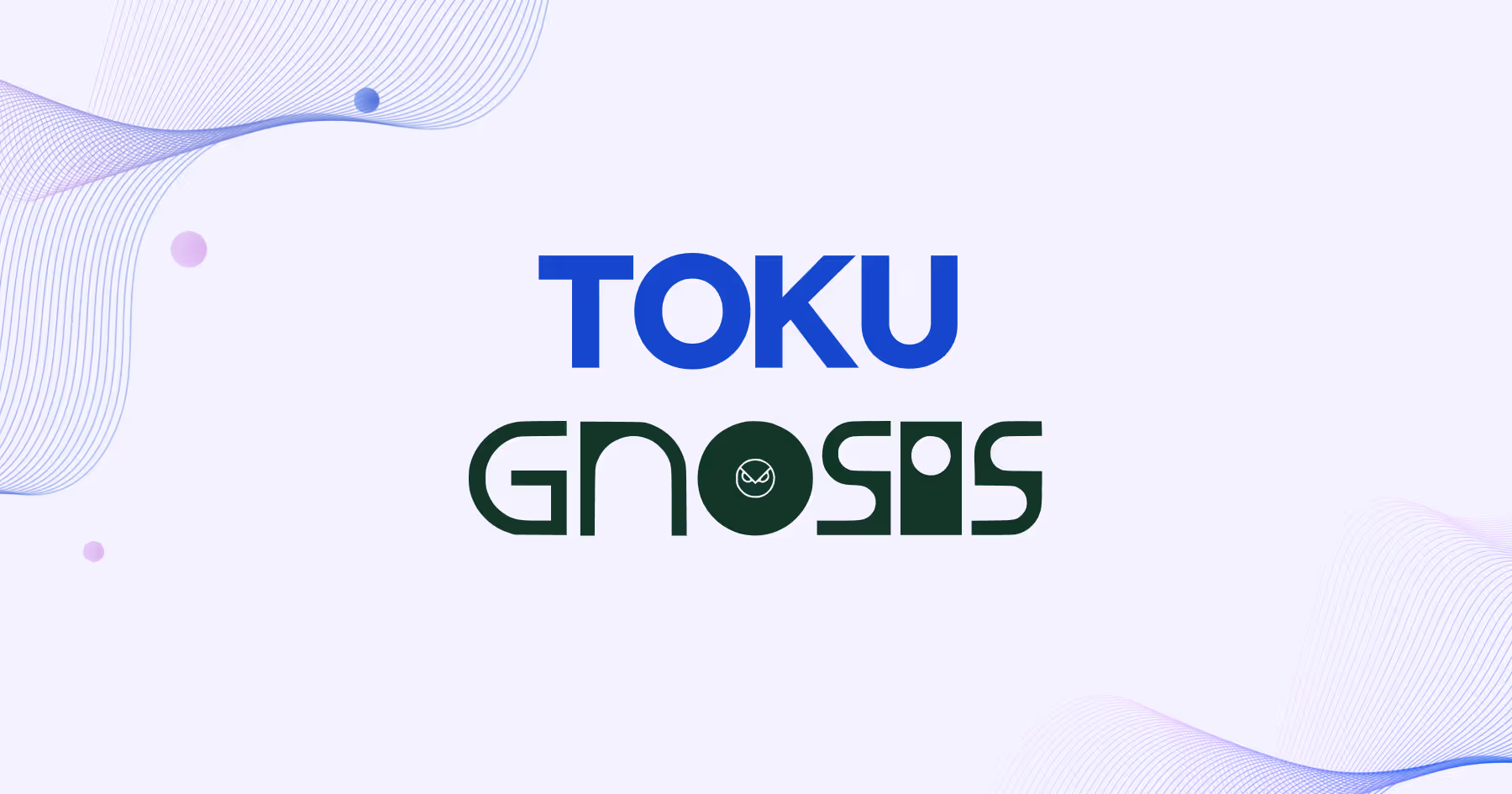
Case Study: How Gnosis Uses Toku for Swiss Employment & Compliant Token Grants
Discover how Gnosis partnered with Toku to deliver Swiss employment, compliant token grants, and tax reporting for global contributors.

.avif)
Gnosis partnered with Toku to create locally compliant Swiss employment and token option grant structures. The collaboration lets Gnosis formally employ contributors in Switzerland while delivering GNO token grants under full compliance with Swiss tax and social contribution rules.
The Challenge
Offering Token Grants Without Losing Compliance in Switzerland
Gnosis is a blockchain technology provider building infrastructure and tooling for decentralized communities. Toku The company faced a dual challenge: many of its contributors were based in Switzerland and needed formal employment rights, while Gnosis also wanted to continue granting tokens (GNO) as part of compensation.
Swiss contributors lacked access to benefits, social security, and formal employment protections when operating only as token-grant recipients. Toku At the same time, Swiss law requires social contributions, tax withholding, and compliant employer-employee relationships whenever people are employed.
Thus, Gnosis needed a solution that would:
- Recognize contributors in Switzerland under legally valid employment contracts
- Enable token (GNO) options as part of compensation while meeting Swiss tax, social security, and withholding obligations
- Provide clear, auditable compliance with Swiss federal rules so contributors could use employment documents for visas, mortgages, or income proof
Without such a structure, compensation via tokens alone would remain legally weak and leave contributors unprotected under Swiss law.
The Approach
Toku Enables Swiss Employment and Token Grant Compliance
To address Gnosis’s constraints, Toku worked closely with the legal, finance, and HR teams at Gnosis to build a hybrid employment + token grant framework that aligns with Swiss regulations.
1. Designing a Swiss-Compliant Employment Relationship
Toku and Gnosis defined employment contracts tied to Swiss labor law. These contracts provided contributors with formal status, access to statutory benefits, social security contributions, and compliance with required employer contributions. Toku ensured that employment documentation and contracts would be acceptable for visa, immigration, and financial institutions.
2. Structuring Token Option Grants
In parallel, Toku structured token grants (GNO options) that complied with Swiss rules. These grants treated tokens as taxable income at the time of exercise. Vesting schedules were defined, and the grants were aligned with Gnosis’s compensation philosophy while remaining legally defensible.
3. Managing Withholding, Social Contributions & Tax Compliance
Swiss law mandates that employer and employee contributions to social insurance (e.g., AHV, IV, ALV, unemployment, disability) be calculated based on the fair market value of tokens when exercised. Toku’s system handled:
- Real-time valuation of GNO at exercise
- Calculations for employer and employee social contributions
- Withholding obligations, remitting necessary payments in fiat even though the benefit is token-based
4. Audit-Ready Recordkeeping & Contributor Clarity
Toku generated compliant documentation: payslips, tax reports, social security filings, and token exercise records. Contributors gained clarity about their tax liability and compliance status, enabling them to use employment proofs for mortgages or visas.
Through this approach, Gnosis maintained its culture of token-based ownership, while contributors got formal status and compliance.
Results
Compliant Employment & Token Grant Execution in Switzerland
By working with Toku, Gnosis transformed what could have been a compliance liability into a robust employment and token grant system. Contributors in Switzerland now enjoy formal employment protections, social benefits, and compliance with labor and tax authorities. Token options are executed with accurate valuations, correct withholding, and full adherence to Swiss rules. The burden on internal finance, legal, and HR teams has declined, freeing them to focus on innovation and ecosystem growth. Gnosis also bolstered its institutional reputation by showing stakeholders it can scale token compensation within strict regulatory environments.
Key Takeaways
1. Token grants must align with local employment law.
Token-based compensation offers upside, but without lawful employment, contributors risk losing legal protections.
2. Fair market valuation and withholding are critical.
Systems must convert token value at time of exercise into taxable income and calculate social contributions reliably.
3. Contributor trust depends on documentation.
Payslips, contracts, and proof of social contributions empower participants to access visas, loans, or financial services.
4. Automation prevents scaling headaches.
Manual compliance for token grants becomes untenable as contributor numbers grow.
5. Governance + compliance = institutional strength.
That Gnosis embeds legal rigor into token compensation signals maturity to investors, regulators, and partners.
The Outcome
Gnosis now offers Swiss contributors both legal employment and token-based rewards in a way that respects Swiss law. The arrangement closes the gap between Web3 culture and regulatory reality. Contributors benefit from social protections and can use employment proof in financial or immigration contexts. Gnosis can continue to grant tokens with compliance baked in, keeping its incentive model intact while scaling responsibility and legitimacy.
Toku helps token-native organizations merge token incentives with legal employment structures globally. Let’s talk about how your contributors can be fully compliant and rewarded for real.







